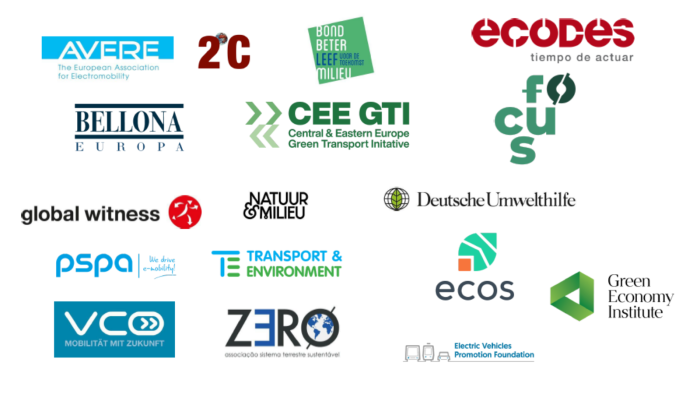As negotiations progress on the European Commission’s proposal for an Alternative Fuel Infrastructure Regulation (AFIR), many amendments have been introduced by the European Parliament to include additional gas stations as part of the revision of the legislation. The signatories of this letter urge decision-makers to reject the creation of additional demand for natural gas in transport.

Dear Transport Ministers,
Dear Members of the European Parliament,
As negotiations progress on the European Commission’s proposal for an Alternative Fuel Infrastructure Regulation (AFIR), many amendments have been introduced by the European Parliament to include additional gas stations as part of the revision of the legislation. The signatories of this letter urge decision-makers to reject the creation of additional demand for natural gas in transport. The Russian invasion of Ukraine has demonstrated that our continued dependence on imports of fossil fuels is not just a threat to our climate goals, but also a serious energy security vulnerability. We cannot exacerbate these challenges.
Dependence on Russian gas – Europe is heavily dependent on Russian gas. More than 40% of European natural gas supplies are Russian imports, which have historically been used in the heating and power sectors. Despite this background, advocates for natural gas in transport have strengthened their calls to deepen our dependence on fossil gas imports by promoting gas as a ‘clean’ solution for road transportation.
The European Commission expects the number of gas-powered trucks to increase. Their proposal foresees a growth toward 510,000 gas-powered trucks by 2030, which will result in the consumption of 18.5 million tonnes of gas every year. Should these proposals be realised, the road transport and shipping sector would account for 26% of all gas imports from Russia in 2021.
Natural gas is a fossil fuel – Methane leaks and slippage cause powerful greenhouse effects and undermine any climate advantage over petrol and diesel. Biomethane is touted as a solution for these shortcomings, despite a lack of scalability for production and a scale not even sufficient for sectors with greater existing natural gas demand. There is no justification to consume limited resources in transport that has not relied on natural gas, especially while European electricity and heating sectors are still heavily gas dependent.
Gas pollutes the air we breathe. Independent studies have demonstrated significant emissions of particulate matter from gas trucks, which can be more than from diesel trucks. In addition, gas trucks emit excessive quantities of very small particles that recent evidence increasingly suggests are the most harmful to human health.
The reduction of our dependence on all fossil and Russian gas will be a challenging task, but other technologies are already available, such as electric trucks. We cannot make that task more difficult by significantly increasing our consumption of gas in transport modes that can be electrified. This would challenge both European energy security and climate commitments
On behalf of the below signatories, we urge Members of the European Parliament and the Member States to reject the creation of additional gas demand.
Yours sincerely,
The signatories
